What are black dog syndrome and black cat syndrome?
Have you ever heard that black dogs and cats aren’t adopted as frequently? There’s a name for this: black dog syndrome (BDS).
Also known as black dog or black cat bias, this is seen at animal shelters when people pass up pets with dark coat colors for pets with lighter colored fur. The theory is that as a result of this phenomenon, black dogs and cats remain at shelters longer than other dogs and cats before getting adopted, putting these animals at higher risk for euthanasia.
Over the past few decades, various studies surrounding black dog syndrome have come out with conflicting evidence. While some support the black dog syndrome theory, others have outright contradicted it.
Why would black animals get overlooked?
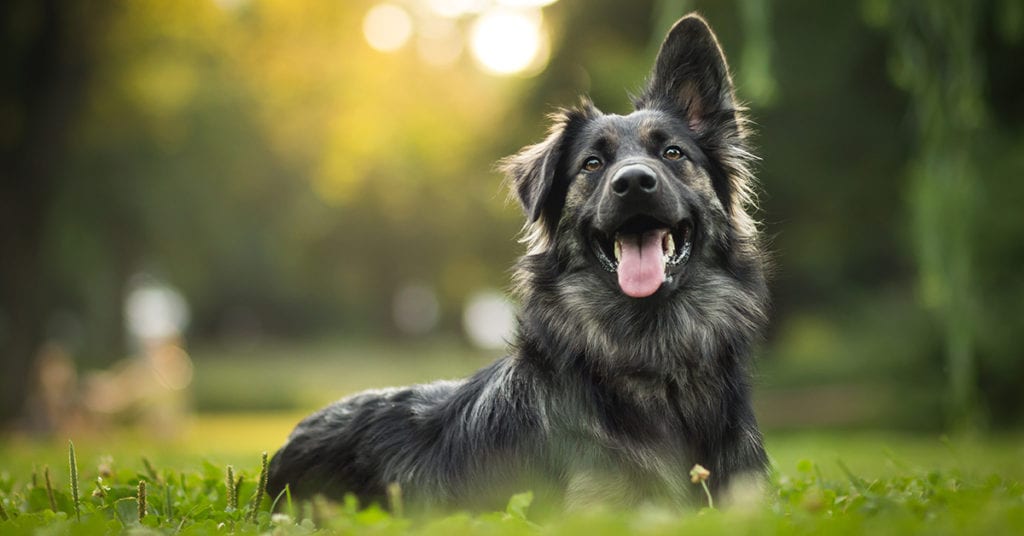
Are potential owners really choosing prospective pets based on physical appearance? What do dogs of other colors have over say, a black lab?
There are a few reasons why adoption rates for black pets may be lower than pets with lighter-colored fur, such as:
- Hard-to-see facial expressions
- Difficult to photograph clearly
- Superstition and fear
Due to their dark fur, black dogs’ facial features can look less defined to the human eye. This can make them appear less approachable because adopters can’t see their expression as clearly. As a result, they might interpret a more negative expression.
This can also be compounded if a dog is large, giving this type of dog the moniker BBD, or big black dog. TV and media sometimes also portray this type of dog as aggressive, which can cause an unjustified fear of all big black dogs in general, similar to the unfounded bias against bully breeds like pit bull terriers. As for superstitions, there are a couple that may cause people to distance themselves from black dogs. Firstly, the color black itself is more commonly associated with bad or evil, while white can signify goodness or “purity.” Secondly, folklore coming from the British Isles (even the Harry Potter books!) tells of black dogs or hellhounds that appear at night as ghostly omens of death. An additional issue with black cats is their novelty use for Halloween. There have been tales of ritual sacrifice of black cats, but thankfully this is most likely just a rumor. The more prevalent issue is when people irresponsibly adopt black cats to use them as props for a Halloween party without giving good thought to caring for their cat long-term. Are you a shelter worker or a humane society volunteer? Let us know in the comments if BDS is something you have ever noticed.According to the ASPCA, appearance does play a factor in choosing a pet. In fact, more than 27% of participants in their study said it was the most important factor when they chose their dog, and 23% said so for their cat.
Photography & Superstition
Once again, because of their dark coat, black dogs don’t always photograph as well on camera. Shelters often take pictures of dogs for their online profile so that potential adopters can see which dogs are available before they go to visit them.
Since black dogs don’t photograph as well, a lighter-colored dog might catch someone’s eye online. The adopter may even get their heart set on the lighter-colored shelter dog just based on the online profile, so when they arrive at the shelter, they may choose to meet the lighter-coated dog first.
Black Cats
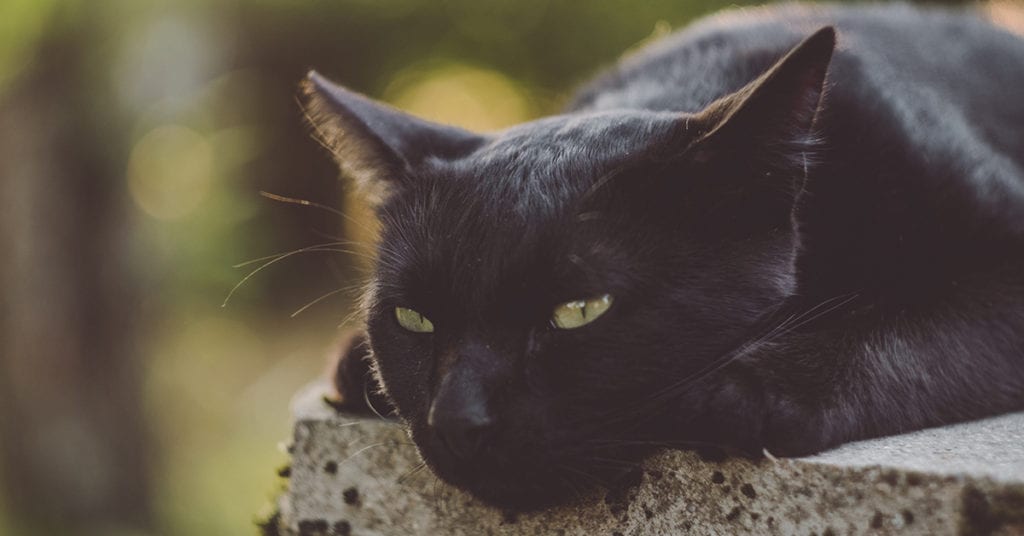
Many have heard that a black cat crossing their path will bring bad luck, especially on Friday the 13th. Children hear this from a young age as well, which can introduce bias early on. Although some people only joke about this superstition, others who are more superstitious may stray away from cats with black fur.
Black cats have also been associated with witchcraft and evil. In the religious-driven Middle Ages, cats were thought to be witches’ familiars or even a witch who had shape-shifted. Petfinder details that cats are more often associated with witches as opposed to other animals because they are nocturnal and independent.
On the bright side, black cats can signify good luck in some cultures.
Similar to black dogs, black cats’ facial features and expressions can be difficult to read. This can have an effect both in online photographs displayed by rescue groups and at the shelters.
Prevention of Black Dog Syndrome and Black Cat Syndrome
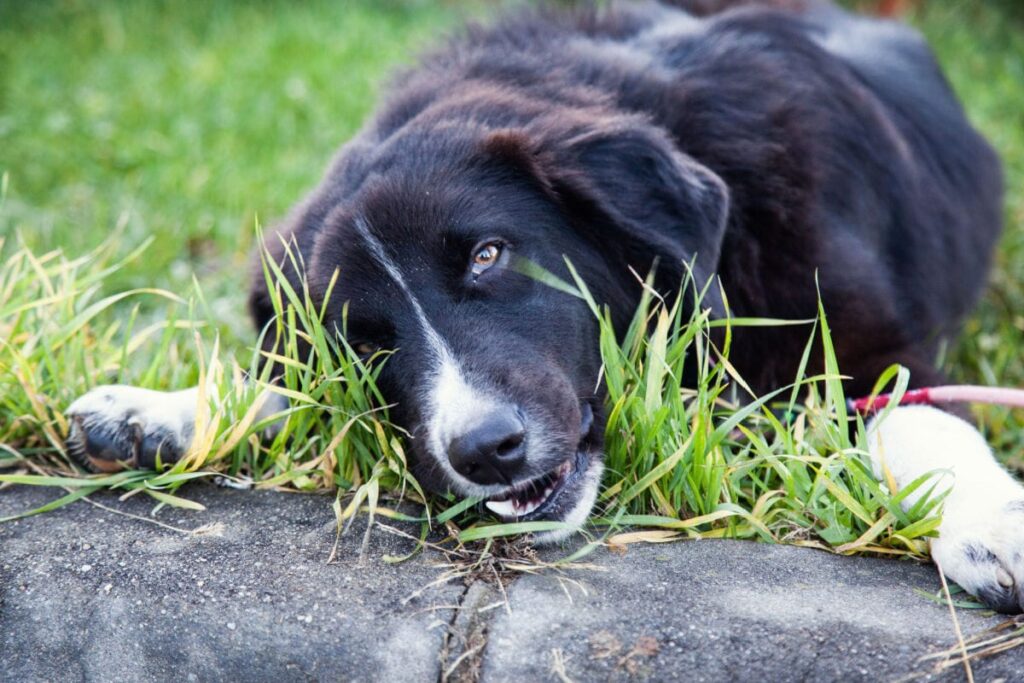
To raise awareness for black dog syndrome and black cat syndrome, there are special days for their appreciation. Black Cat Appreciation Day is August 17th. National Black Dog Day is October 1st, a day that encourages people to give adoptable dogs with black coats a chance. Additionally, some shelters don’t let people adopt black cats the week before Halloween in order to avoid irresponsible adoptions.
Is BDS Fact or Fiction? What Scientific Studies Have to Say.
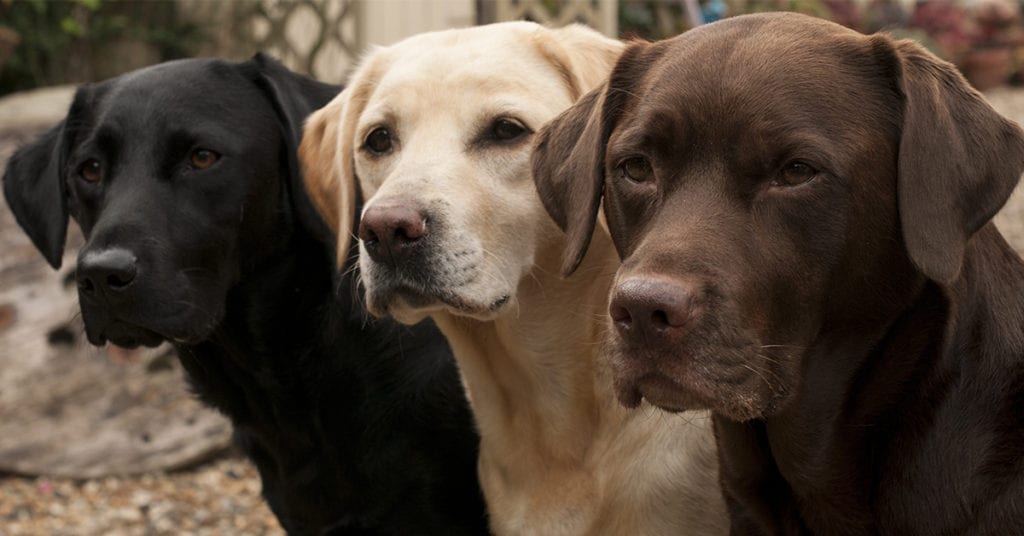
Whether or not black dog and black cat syndrome are legit isn’t crystal clear. While one December 2016 study found some evidence, another from February 2016 found none. That latter study, published in the Journal of Applied Animal Welfare, examined four years of adoption records for over 16,000 dogs in two U.S. animal shelters in the pacific northwest. It concluded that age and breed group were more important deciding factors in terms of adoptability than coat color.
The December study used data from one animal shelter of 7,440 dogs between the years 2010–2011.
The relationship between coat shade and dog outcomes was not straightforward.“While no relationship existed at the bivariate level, after controls were added, entirely black dogs showed somewhat lower odds of adoption—and higher euthanasia risk—than those characterized as secondarily black or sans black,” reads the study abstract.
In addition, a study published in 1998 found that “certain coat colors (gold, gray, and white), small size, and history of an indoor environment were also significant predictors” of dogs getting chosen to go to their forever homes.
All Cats and Dogs Deserve a Fair Chance
It seems scientists can’t fully agree on a definitive answer to the legitimacy of black dog and black cat syndrome. We can, however, agree that all shelter pets deserve a loving home, no matter their breed or coat color.





0 Comments